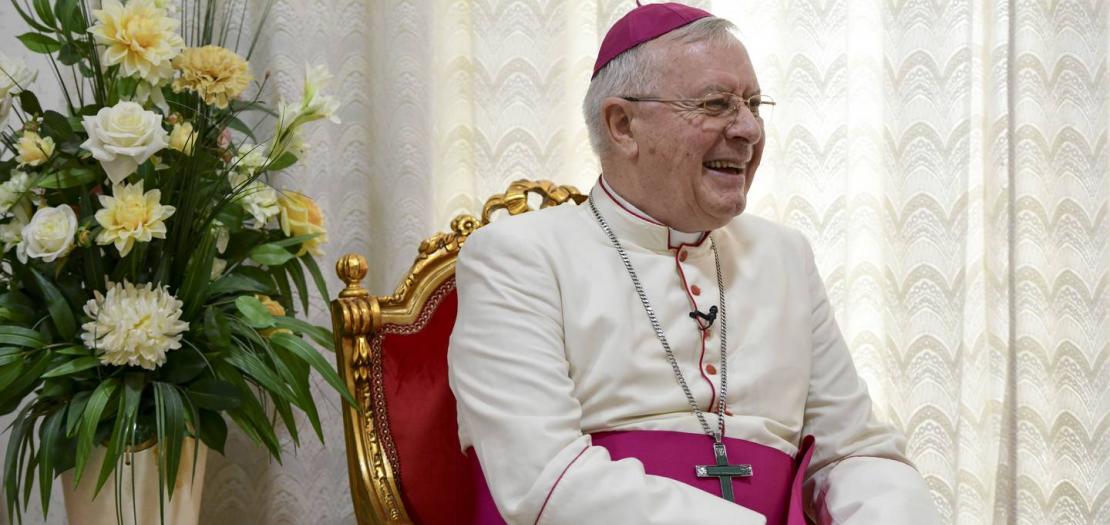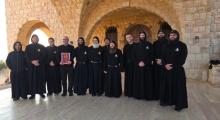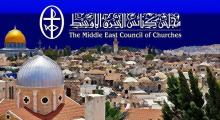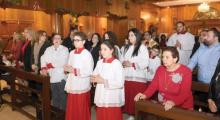Issued by the Catholic Center for Studies and Media - Jordan. Editor-in-chief Fr. Rif'at Bader - موقع أبونا abouna.org

"Gratitude" for a Church that has grown over the past 18 years in terms of priests, religious, faithful and structures - including parishes and schools - and, at the same time, sorrow for some tragic events: one above all, the death of four Missionary Sisters of Charity in Aden, Yemen, writes outgoing Apostolic Vicar of Southern Arabia (United Arab Emirates, Oman and Yemen) Monsignor Paul Hinder in his last pastoral letter to the faithful, published over the weekend on the vicariate's website.
In the message he gives thanks to Christ for his years of service, the experiences he has lived "in guiding" a flock which he describes as "diverse and multicultural". "I look back over the past 18 years," the prelate emphasized, "with gratitude" for having spent "this time with you as a bishop and as a companion on the journey of faith".
In his last pastoral letter, Bishop Hinder looks back over the years at the helm of a particular and extremely varied ecclesiastical reality, in its positive aspects and critical elements, "in its ups and downs". Among the most significant moments, he points to "the visit of Pope Francis to Abu Dhabi" with the historic signing of the document on brotherhood with the Imam of al-Azhar or "the consecration of new churches and the inauguration of new schools".
Not only lights, but also dark shadows such as "the killing of four Missionaries of Charity and eight of their collaborators in March 2016 in Aden" writes the prelate, with "the kidnapping of Fr. Tom Uzhunnalil on the same day" freed in September of the following year. Bishop Hinder also does not hide the critical internal elements, among which he emphasizes "selfish struggles within the various parishes". "However, looking back," he says, "I can say that I enjoyed this journey together with all of you."
"I remember with gratitude," the Swiss-born bishop continues in his letter, "all the priests, religious sisters and brothers, who came here as missionaries to serve the pastoral needs of a migrant Church. When I arrived in January 2004, we had just over 40 priests in six countries of the Vicariate of Arabia. Now, even after reorganizing the two Gulf Vicariates [North including Saudi Arabia, Kuwait, Qatar and Bahrain; South with Emirates, Oman and Yemen], we have 70 priests in the Vicariate of South Arabia alone'.
Mgr Hinder turns his thoughts to his own order, the Capuchins, who have taken care of the Church in the Gulf together with the diocesan priests and the other congregations present over the years.
"I thank God," he adds, "for the thousands of men and women who, in their different capacities and sensitivities, have helped the Church to pursue its mission". He recalls three elements included in the episcopal motto and outlining the future of the region and its Church: justice, peace and joy for a 'migrant' reality. There is then a reminder of those who are in the habit of attacking or criticizing others for "different traditions, cultures, languages and nationalities". "However, as the apostle [Paul] says, these factors should not represent a boundary that limits socialization with others", but "we should rather seek justice, peace and joy for all.
In closing his last pastoral letter, Msgr. Hinder addresses a greeting to his successor Msgr. Paolo Martinelli, also a "good Capuchin friar and a great professor", who is to be "supported in his mission". "In the last eighteen years I have witnessed much joy in our Church. Almost all of us are migrants, with no great rights and no security to stay. Yet,' he concludes, 'despite the struggles, we have the joy of our faith and peace in this multicultural and multilingual Church. This is the gift to thank God for and to work for unity'.







